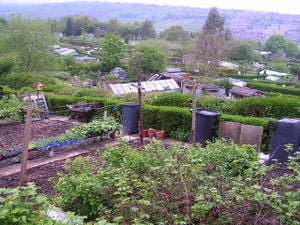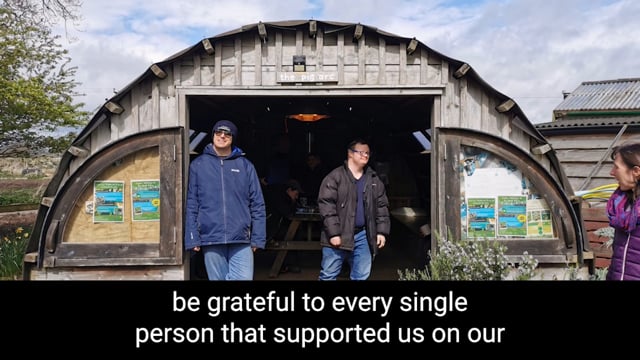This page provides a UK overview for CANs (community agency networks) and community groups active in, or with an interest in Land activism and Land reform.

 The Scottish Gaelic concept of Dúthchas urges that people and nature are deeply entangled. Let it guide the path to land reform, Daily Alternative (Feb 25, 2024)
The Scottish Gaelic concept of Dúthchas urges that people and nature are deeply entangled. Let it guide the path to land reform, Daily Alternative (Feb 25, 2024)  The community buyout projects leading Scotland’s self-help revolution, theguardian.com (Jan 01, 2024)
The community buyout projects leading Scotland’s self-help revolution, theguardian.com (Jan 01, 2024)  Costa Rica restored its ravaged land to health. The rich UK has no excuse for such complete failure, George Monbiot, The Guardian (Apr 21, 2023)
Costa Rica restored its ravaged land to health. The rich UK has no excuse for such complete failure, George Monbiot, The Guardian (Apr 21, 2023)
Community action projects[edit | edit source]
Community land buyouts[edit | edit source]
Communities can sometimes buy the land they live on and manage them through locally-run trusts. There are many examples of this in Scotland including Eigg, Assynt and Ulva.
Community land trust[edit | edit source]
Main article: Community land trust
A community land trust or (CLT) is a nonprofit corporation that holds land on behalf of a place-based community, while serving as the long-term steward for affordable housing, community gardens, civic buildings, commercial spaces and other community assets on behalf of a community.
CLTs balance the needs of individuals who want security of tenure in occupying and using land and housing, with the needs of the surrounding community, striving to secure a variety of social purposes such as maintaining the affordability of local housing, preventing the displacement of vulnerable residents, and promoting economic and racial inclusion. Across the world, there is enormous diversity among CLTs in the ways that real property is owned, used, and operated and the ways that the CLT itself is guided and governed by people living on and around a CLT’s land.
Networks[edit | edit source]
- Land Justice UK
- Are you working for #landjustice in the UK? Shared Assets are building a map of all the wonderful projects, organizations and campaigns out there - add yourself here! sharedassets, added 15:18, 21 December 2020 (UTC)
- Land In Our Names, "Reconnecting Black communities with Land in Britain", aded 12:25, 18 February 2021 (UTC)
Visions[edit | edit source]
- With land we can: a new narrative for land, futurenarrativeslab.org, added 15:39, 18 August 2021 (UTC)
- What would a "new land contract" for the UK—written from scratch with fairness in mind—actually look like? Can we do some of it straightaway? Jun 25, 2020[1] "If we really want to prevent climate collapse, renew our society and build a successful, prosperous market economy, we will need to fix this obsolete right of extraction that is coded into the foundations of our soc…"
Video[edit | edit source]
Citizens data initiative[edit | edit source]
- Briefing 17: Who owns all the land? Inequality Briefing
How to's[edit | edit source]
- Who owns England? includes tools and resources for investigating land ownership
Inspiring quotes[edit | edit source]
- "...sprawling extractive land uses are a lethal threat to the living world. ...unless we count the hectares and decide together how best they should be used, we will lose the struggle to defend the habitable planet." , George Monbiot, Apr 21, 2023[2]
Maps[edit | edit source]
- chart showing how all land in the UK is allocated, and how much overseas land is used to produce food for the UK, carbonbrief.org, Jul 21, 2021, scroll down about 3/4 into the article to see the chart, added 16:54, 31 January 2022 (UTC)
- Land ownership map, Who Owns England
- UK Land Justice Ecosystem map, kumu.io/SharedAssets
Policies[edit | edit source]
- People's Land Policy, Land reform from the ground up. Project to develop discussion and debate about what kind of land reform we need, learning from the experience of the People's Food Policy, added 16:57, 15 January 2021 (UTC)
Research[edit | edit source]
- Activate! Land in the hands of communities, Hannah Gardiner, Shared Assets, Mar 2019 localtrust.org.uk
Other resources[edit | edit source]
- Our Land, The final report of the Liverpool City Region Land Commission, cles.org.uk, added 16:36, 6 July 2021 (UTC)
Common land[edit | edit source]
Common land is collective land (sometimes only open to those whose nation governs the land) in which all persons have certain common rights, such as to allow their livestock to graze upon it, to collect wood, or to cut turf for fuel.
A person who has a right in, or over, common land jointly with another or others is usually called a commoner.
In Great Britain, common land or former common land is usually referred to as a common; for instance, Clapham Common and Mungrisdale Common. Due to enclosure, the extent of common land is now much reduced from the hundreds of square kilometres that existed until the 17th century, but a considerable amount of common land still exists, particularly in upland areas. There are over 8,000 registered commons in England alone.
Campaigns[edit | edit source]
The Landworkers' Alliance are a UK-based union of farmers, growers, foresters and land-based workers founded in 2015 who work together to campaign for better food and land-use systems.
They also work internationally on topics such as food sovereignty through membership of Via Campesina, the International Peasant’s Movement, which represents over 200 million peasants, farmers and land-based workers through 182 member organisations.
They launched a manifesto for tacking rural inequality at the Oxford Real Farming Conference in 2016, and are twinned to US based Farm Hack to bring their model of supporting new farmers to the UK.
- The Landworkers’ Alliance, News from The Landworkers' Alliance, landworkersalliance.org.ukadded 14:21, 14 June 2024 (UTC)
UK land reform[edit | edit source]
Advocates of land reform in Britain have included the 17th-century Diggers, John Stuart Mill, Alfred Russel Wallace, and Jesse Collings. Currently the Labour Land Campaign promotes the case for a land value tax, one of the results of which would be some land reform. The Green Party of England and Wales and the Scottish Green Party support land value tax. Currently aristocrats still own a third of England and Wales.
Land ownership in the United Kingdom[edit | edit source]
Land ownership in the United Kingdom is distributed in a Pareto-like distribution, with a relatively small number of organisations and estates, and to a lesser extent people, owning large amounts, whether by area or value, and much larger numbers owning small amounts or no land at all.
See also[edit | edit source]
- Land activism UK news
- Towards a more democratic and climate friendly way of meeting housing need across England
- Housing UK news
- Housing and land UK community action resources
- Climate change solutions UK, Housing
- Climate change solutions UK, Land use
- Community land trust
- Open spaces activism UK
- Saving water in South East England
- Rural sustainability UK
- Urban sustainability UK
- Neighbourhood Planning
- Urban sustainability, Urban sustainability news
- Housing, Housing affordability, Housing cooperative, Housing for flood-prone areas, Urbanization,
- Citizens data initiative UK
- Extinction Rebellion
- Citizens' assembly
- XR and future democracy
- Land use
local information can be found, or shared, via our many UK location pages
External links
Wikipedia: Drought in the United Kingdom W, 2009 Great Britain and Ireland floods W, Affordable housing W, Affordability of housing in the United Kingdom W
References
- ↑ thealternative.org.uk
- ↑ Costa Rica restored its ravaged land to health. The rich UK has no excuse for such complete failure, George Monbiot theguardian.com




